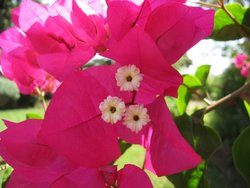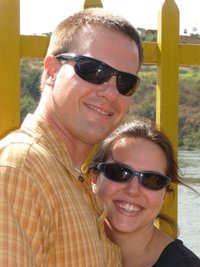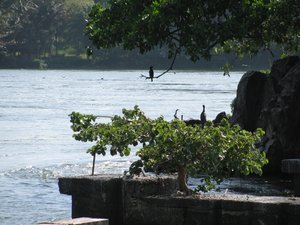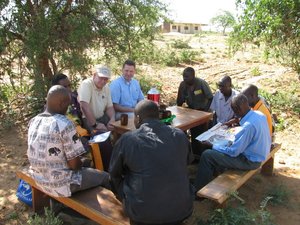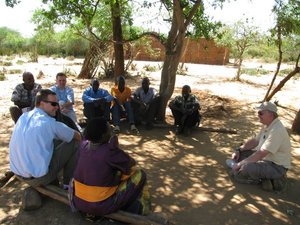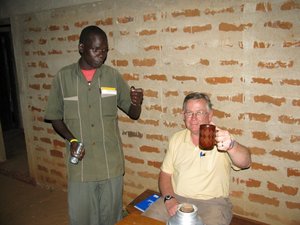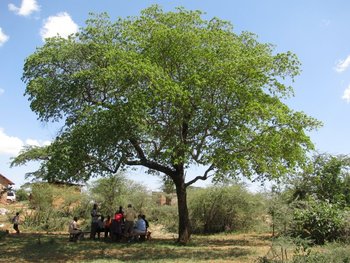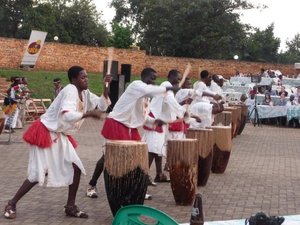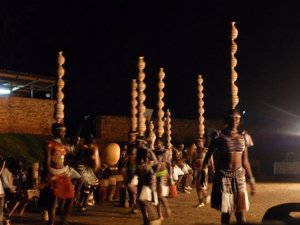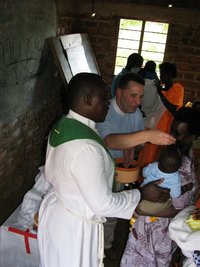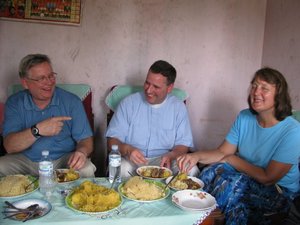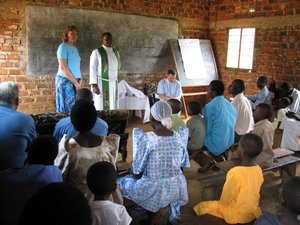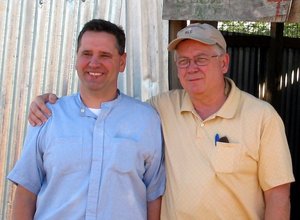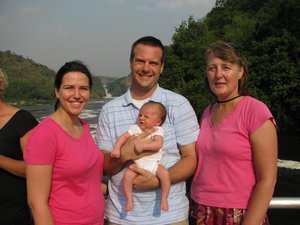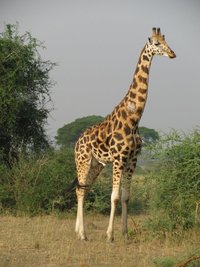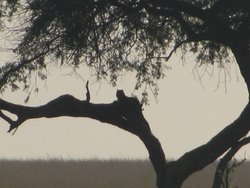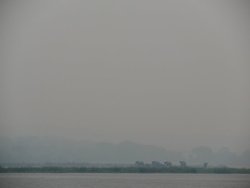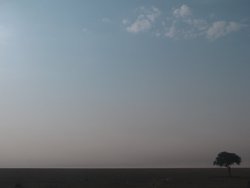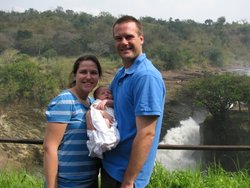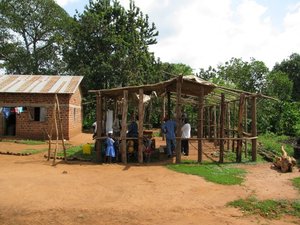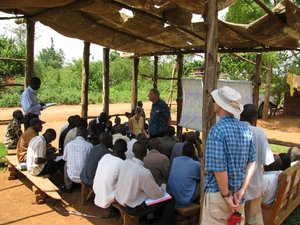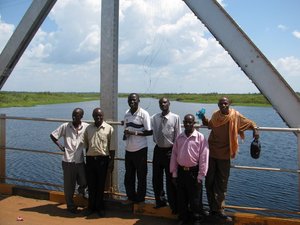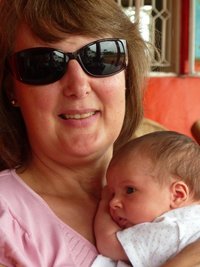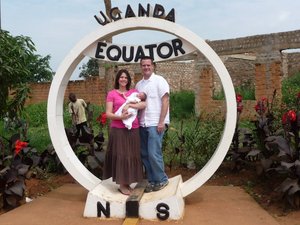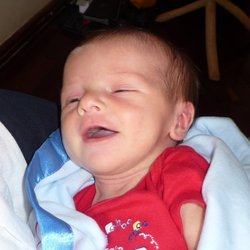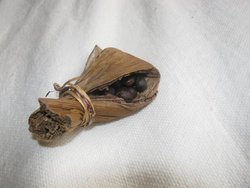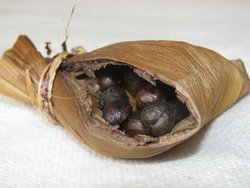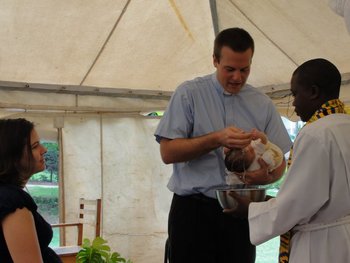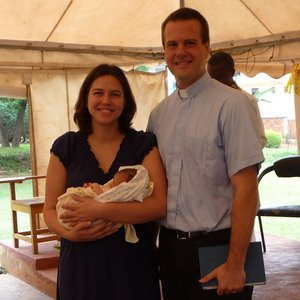Vicarage concludes - Re-assigned!
 Tuesday, February 2, 2010 at 2:51PM
Tuesday, February 2, 2010 at 2:51PM  ~ Rev. Claude and Rhoda Houge ~ After I dropped off Mom at the airport at the end of January I waited around just a couple hours to pick up Rev. Claude Houge, LCMS World Mission's Area Facilitator for East Africa (my boss). Claude came on brief notice for a very short visit to Uganda to talk with us about our future with LCMS World Mission.
~ Rev. Claude and Rhoda Houge ~ After I dropped off Mom at the airport at the end of January I waited around just a couple hours to pick up Rev. Claude Houge, LCMS World Mission's Area Facilitator for East Africa (my boss). Claude came on brief notice for a very short visit to Uganda to talk with us about our future with LCMS World Mission.
As my vicarage (internship) draws to a close at the end of April we have a natural breaking point, a time for both sides to prayerfully consider the future. On our side we have no hesitation. We love work on the mission field. We love the challenges, the rewards, the excitement, the adventure, and most of all, the people - both the people we meet and work with here in Africa and the people in the States who lovingly have sent us to this work. So as Krista and I looked ahead we were hopeful that our work with LCMS World Mission in East Africa would continue. We praise the Lord that Claude was coming to deliver just that news although it came with a twist.
As Claude explained it, LCMS World Mission is happy to extend me a call (a job-offer for a pastor) to be formalized on Call Day, April 27th. BUT the call is not to continue here in Uganda. Instead, if we are open to it (which we are), the call will be issued for a position as the Associate Area Facilitator for East Africa with responsibility for the existing and developing partnerships and relationships in Kenya and Tanzania. Wow! Firstly, that's a really long title. Secondly, wow!
 ~ East Africa ~Some months ago Claude had been hopeful that he could divide some of his responsibilities in East Africa. Fellow missionary Rev. Jacob Gillard and I work in Uganda, focused primarily on Theological Education for Evangelism (TEE) and Word and Sacrament ministry up-country. Claude does the work in all the other countries in East Africa from hopeful relationships in Egypt to partnerships in Tanzania. Uganda has two career missionaries and the rest of East Africa shares one. As more and more Lutheran churches in East Africa express interest in walking alongside the Lutheran Church - Missouri Synod, Claude has been stretched more and more thinly across the area. So several months ago he opened a position to help him divide some of the responsibilities. Since his extensive experience working in missions in Africa (over 20 years) is best suited to the new relationships and partnerships developing in places like Ethiopia, Claude was looking for someone to handle the more stable (but no less demanding) relationships with Lutheran church bodies in Kenya and Tanzania. So that's the position he has offered us.
~ East Africa ~Some months ago Claude had been hopeful that he could divide some of his responsibilities in East Africa. Fellow missionary Rev. Jacob Gillard and I work in Uganda, focused primarily on Theological Education for Evangelism (TEE) and Word and Sacrament ministry up-country. Claude does the work in all the other countries in East Africa from hopeful relationships in Egypt to partnerships in Tanzania. Uganda has two career missionaries and the rest of East Africa shares one. As more and more Lutheran churches in East Africa express interest in walking alongside the Lutheran Church - Missouri Synod, Claude has been stretched more and more thinly across the area. So several months ago he opened a position to help him divide some of the responsibilities. Since his extensive experience working in missions in Africa (over 20 years) is best suited to the new relationships and partnerships developing in places like Ethiopia, Claude was looking for someone to handle the more stable (but no less demanding) relationships with Lutheran church bodies in Kenya and Tanzania. So that's the position he has offered us.
What would the work be? We're not quite sure yet. Since Claude was spread so thin, he couldn't get too deeply involved with the church in any one country. Since I'll be working in only two countries, I would be in a much better position to respond to their needs and requests. I hope the work involves some teaching - I have found I really enjoy teaching TEE. The work will certainly involve Word and Sacrament ministry. And it will involve a lot of that Ministry of Presence I've blogged about lately - those less tangible benefits derived when two parties walk alongside each other. That last one is a hard sell in America, but wow is it important in Africa.
Some of the details have been worked out already. First, we will move to Kenya by May 1st. We'll live in Karen, a suburb of Nairobi, in a mission house that shares a compound with the LCMS World Mission field office for East Africa. The mission house is currently occupied by Claude and Rhoda but they have been thinking for some time that they would like a smaller place, so they have offered the mission house to us. It has been set up as a guest-house of sorts and part of our work would involve hosting guests who come to or through Kenya. We've been to the mission house before and already we have visions of Josiah running about the yard and Krista exercising her gift of hospitality as guests come and go. I'll have an actual office in the office building just 50 feet from our home which will work really, really well for me. While I've enjoyed working from our home for the last year and a half, I am fully aware of my own limitations. I will benefit greatly from an office outside my home.
After moving our things to Kenya at the end of April, we'll have just a few weeks to settle in before we leave for language learning in Tanzania. We'll study KiSwahili in a language-immersion program at the Evangelical Lutheran Church of Tanzania's Junior Seminary in Morogoro. It's serious business - their website is www.studyswahili.com!This is, of course, the best possible way to learn a language, and Krista and I will likely spend about 3 months there. Josiah will be enrolled in the "Kindergarten" which at his age will be day-care. We'll live in student housing on campus and eat in the dining hall. It'll be an adventure!
After language school we'll return to Kenya for just a couple weeks before we leave for furlough (home-leave in the United States)! Our furlough schedule should be for the months of October, November, and December. Then, finally, we'll be arriving back in Nairobi the first week of January, 2011. Josiah will be one year old. We'll finally get a chance to really settle in to our home. I will start shadowing Claude to learn as much as I can about his work and his approach to ministry in Kenya and Tanzania. Eventually, my responsibilities will increase and his will decrease and the handoff will be "complete."
So that's it. Praise the Lord for a successful vicarage experience and for opportunities to continue in His service here in East Africa! -Shauen



